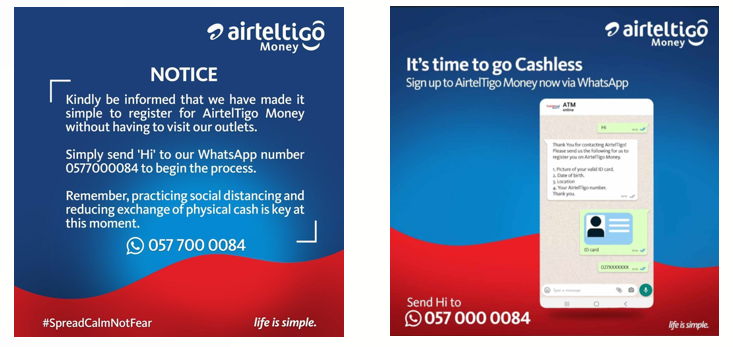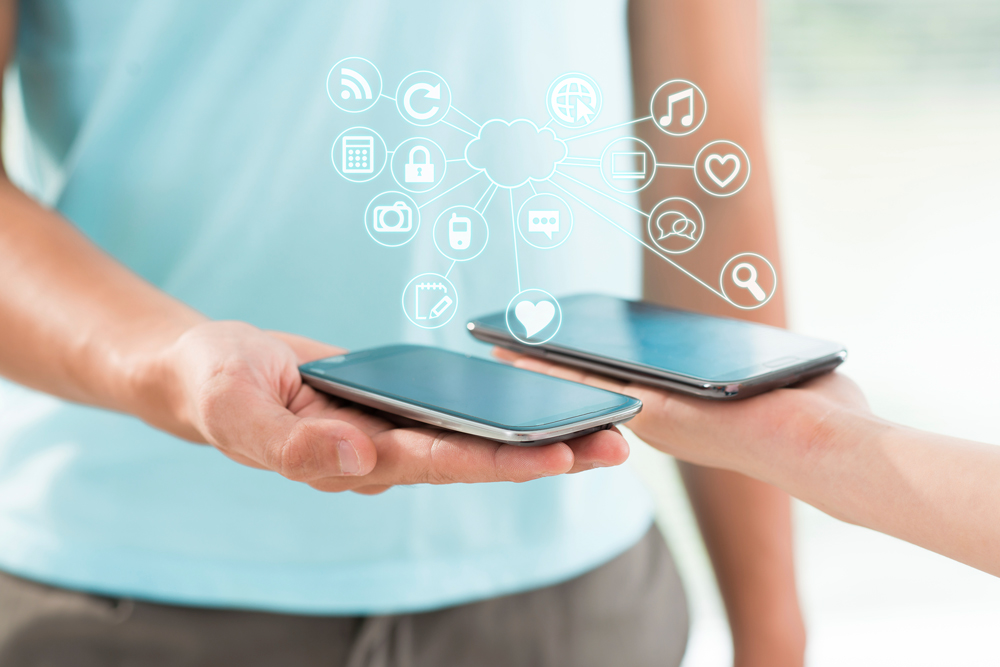The COVID-19 crisis has stimulated businesses to redesign their customer journeys and replace face to face interactions with digital interactions. The trend has been adopted by wide ranging businesses including mobile money. The first and one of the most important consumer interaction in mobile money business is consumer registration or on-boarding. Most mobile money service providers globally follow an agent based registration and Know Your Customers (KYC) process, where consumer visits an agent to fill the registration form and share the requisite documents for identity verification. But in an age of lockdowns, social distancing and people preferring to stay at home, agent based registration is quickly being substituted with digital self-registration and eKYC. This article discusses examples of mobile money providers who have digitized their consumer registration process.
Digital self-registration in Egypt
In Egypt to register for mobile money services, consumers had to visit a mobile money retailer, fill-in and sign the subscription form and verify themselves by showing the National ID. Consumers receive an SMS with temporary PIN. Consumers then have to login to the mobile money service and set a new PIN to start using their mobile wallet. The registration process is manual and requires customers to visit a retailer. However, in the wake of COVID-19 pandemic, the Central Bank of Egypt (CBE) allowed mobile money providers to offer a digital self-registration service, enabling consumers to register for mobile money services from the safe environment of their home.
Taking cue from the central bank, mobile money services in Egypt – Orange Cash, Vodafone Cash and Etisalat Cash launched digital self-registration. Orange Cash was one of the first to launch digital self-registration in April 2020. The digital self-registration process is quick, convenient and hassle-free. Consumers have to access the Orange Cash service on mobile phone via #115# USSD menu or Orange Cash mobile application and simply enter their national ID and temporary PIN received via SMS. They further need to create a new PIN to start using Orange Cash services. Thus, consumers can subscribe to the Orange Cash service from their home without visiting an Orange retailer, preventing potential health and hygiene risks [1].
While the self-registration process is digital, it does not compromise on security. The consumers opting for self-registration get a temporary mobile wallet valid for 3 months and with a lower wallet balance limit of EGP 10,000 compared to the EGP 50,000 limit of permanent wallet registered via an Orange retailer. The consumers’ National ID should be the one registered with their mobile number. The consumers can only register for three wallets on one National ID.
The consumers can upgrade temporary wallet to permanent wallet by visiting an Orange shop. Moreover, the consumers visiting an Orange shop, can book their turns in advance in the shop’s waiting lines and monitor their turn through “My Orange” mobile application while being at home.
The consumers can request money from other users or cash-in at 10,000 ATMs or 100,000 Fawry outlets and 800 Orange shops across the country. Many daily wagers received government grants via Orange Cash service from the Ministry of Social Solidarity [2]. With money in their Orange Cash wallet, the consumers can transfer money to other users; recharge airtime and data for themselves and others; pay electricity, water, gas and mobile bills; and donate for noble causes, all from their home.
Introduction of digital self-registration resulted in unprecedented growth in mobile wallet users not only for Orange Cash, but for entire mobile wallet ecosystem in Egypt. As per National Telecom Regulatory Authority (NTRA) of Egypt, the number of mobile wallets in Egypt have increased drastically by 1.2 million in only two months, from 12.3 million mobile wallets in March 2020 (registered in last seven years) to 13.5 million mobile wallet in May 2020 [3].
Online KYC document submission in Iraq
AsiaHawala, one of the largest mobile money services in Iraq, moved a step further by enabling consumers to submit their KYC documents online. AsiaHawala offer two types of wallet – Lite Wallet and Standard Wallet. A consumer can obtain Lite Wallet through digital self-registration by accessing AsiaHawala USSD menu *212# or mobile application from their mobile phone and selecting preferred language. The threshold of Lite Wallet is IQD 100,000 for 60 days. After 60 days, consumers have to upgrade to Standard Wallet by visiting AsiaHawala agent and completing the KYC process. The standard wallet is active for unlimited period and comes with a maximum balance limit of IQD 20 million and monthly transaction limit of IQD 5 million.
Owing to pandemic, AsiaHawala has digitized the process of registering or upgrading from Lite Wallet to Standard Wallet. AsiaHawala has launched an online KYC page https://kyc.asiahawala.com/lang?language=English. The consumer can access the KYC page online through mobile phone, desktop, laptop or tablet and enter their personal details including name, gender, date of birth, preferred language, mobile number, full address, city/governorate, civil/national ID number and residency card number. Consumers then have to upload their own photo and photo of front page and back page of civil/national ID and residency ID. Finally, they tick on a declaration and press ‘Send eKYC’ button to submit the information and documents. After successful verification of documents, customer can start using the AsiaHawala standard wallet service. The online registration form in available in English, Arabic and Kurdish. The online submission of personal details and documents enabled AsiaHawala consumers to complete the entire KYC process from home during lockdown.
 WhatsApp based registration in Ghana
WhatsApp based registration in Ghana
In Ghana, with the advent of COVID-19, Bank of Ghana (country’s central bank) on 18 March 2020 relaxed KYC norms and permitted the consumers to use their already existing mobile phone registration details to be on-boarded for a minimum KYC account [4].
In Ghana, the consumers can self-register and open minimum KYC mobile money account remotely using mobile money USSD code. However, in times of COVID-19, AirtelTigo Money introduced another simple and convenient way for the consumers to self-register using Whatsapp, targeting the younger demographics of the country. The consumers simply need to send ‘Hi’ to AirtelTigo Money WhatsApp number 0577000084 to begin the process. The AirtelTigo Money WhatsApp number responds with the list of documents to be submitted by the consumers. Consumers then have to share photo of their ID, date of birth, location and AirtelTigo Mobile Number to complete the registration process. The WhatsApp based registration is the quickest and easiest way to register for the mobile money account from home in Ghana and follow social distancing.
 Overall, the COVID-19 crisis has demonstrated the successful digitization of mobile money registration process in many countries and is expected to become a permanent feature in a post COVID-19 era.
Overall, the COVID-19 crisis has demonstrated the successful digitization of mobile money registration process in many countries and is expected to become a permanent feature in a post COVID-19 era.



 WhatsApp based registration in Ghana
WhatsApp based registration in Ghana



